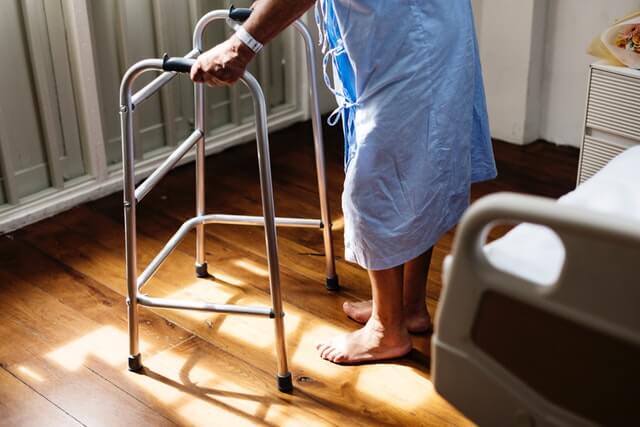1. About low-dose aspirin
Daily low-dose aspirin is a blood thinning medicine. Aspirin is also known as acetylsalicylic acid.
Low-dose aspirin helps to prevent heart attacks and strokes in people at high risk of them.
Your doctor may suggest that you take a daily low dose if you have had a stroke or a heart attack to help stop you having another one.
Or, if you’re at high risk of heart attack – for example, if you have had heart surgery or if you have chest pain caused by heart disease (angina).
Only take daily low-dose aspirin if your doctor recommends it.
Low-dose aspirin comes as tablets. It’s available on prescription. You can also buy it from pharmacies, shops and supermarkets.
Children are sometimes treated with low-dose aspirin after heart surgery or to treat a rare illness called Kawasaki disease. Children should only take low-dose aspirin if their doctor prescribes it.
Taking low-dose aspirin to prevent heart attacks and strokes is not the same as taking aspirin as a painkiller. Read our information on aspirin for pain relief.
2. Key facts
- Daily low-dose aspirin makes the blood less sticky and helps to prevent heart attacks and stroke.
- It’s usual to take a dose of 75mg once a day. Sometimes doses may be higher.
- It’s best to take low-dose aspirin with food so it doesn’t upset your stomach.
- Taking low-dose aspirin isn’t safe for everyone. Only take low-dose aspirin if your doctor recommends it.
- Low-dose aspirin is also called by the brand names Caprin, Danamep, Micropirin and Nu-seals.
3. Who can and can’t take low-dose aspirin
Most people aged 16 or over can safely take low-dose aspirin if their doctor recommends it.
Low-dose aspirin isn’t suitable for certain people.
It’s sometimes called baby aspirin because of the small dose, but it’s not safe for children.
Never give aspirin to a child younger than 16, unless their doctor prescribes it.
There’s a possible link between aspirin and Reye’s syndrome in children.
Reye’s syndrome is a very rare illness that can cause serious liver and brain damage.
Important
Never give aspirin to children younger than 16, unless their doctor prescribes it.
To make sure low-dose aspirin is safe for you, tell your doctor if you have:
- an allergy to aspirin or similar painkillers such as ibuprofen
- ever had a stomach ulcer
- high blood pressure
- indigestion
- heavy periods – taking daily aspirin can make them heavier
- recently had a stroke (low-dose aspirin isn’t suitable for some types of stroke)
- asthma or lung disease
- ever had a blood clotting problem
- liver or kidney problems
- gout – it can get worse if you take daily aspirin
Check with your doctor that it’s safe for you to take low-dose aspirin if you’re pregnant, trying to get pregnant, or if you want to breastfeed.
4. How and when to take it
Take low-dose aspirin once a day. Don’t take it on an empty stomach. It’s best to take it with or just after food. This will make it less likely to upset your stomach.
How much should I take?
Your doctor will discuss what dose is right for you. It’s important to take low-dose aspirin exactly as recommended by your doctor.
The usual dose to prevent a heart attack or stroke is 75mg once a day (a regular strength tablet for pain relief is 300mg).
The daily dose may be higher – up to 300mg once a day – especially if you have just had a stroke, heart attack or heart bypass surgery.
Different types of low-dose aspirin tablets
Low-dose aspirin comes as several different types of tablet:
- standard tablets – that you swallow whole with water
- soluble tablets – that you dissolve in a glass of water
- enteric coated tablets – that you swallow whole with water. These tablets have a special coating that means they may be gentler on your stomach. Do not chew or crush them because it’ll stop the coating working. If you also take indigestion remedies, take them at least 2 hours before or after you take your aspirin. The antacid in the indigestion remedy affects the way the coating on these tablets works.
You can buy low-dose enteric coated aspirin and low-dose soluble aspirin from pharmacies, shops and supermarkets.
What if I forget to take it?
If you forget to take a dose of aspirin, take it as soon as you remember. If you don’t remember until the following day, skip the missed dose.
Do not take a double dose to make up for a forgotten dose.
If you forget doses often, it may help to set an alarm to remind you. You could also ask your pharmacist for advice on other ways to remember to take your medicine.
What if I take too much?
Taking 1 or 2 extra tablets by accident is unlikely to be harmful.
The amount of aspirin that can lead to overdose varies from person to person.
Urgent advice:Call your doctor straight away if:
You take too much aspirin by accident and experience side effects such as:
- feeling sick (nausea)
- ringing in the ears (tinnitus)
- hearing problems
- confusion
- dizziness
If you need to go to a hospital accident and emergency (A&E) department, do not drive yourself – get someone else to drive you or call for an ambulance.
Take the aspirin packet or leaflet inside it, plus any remaining medicine, with you.



